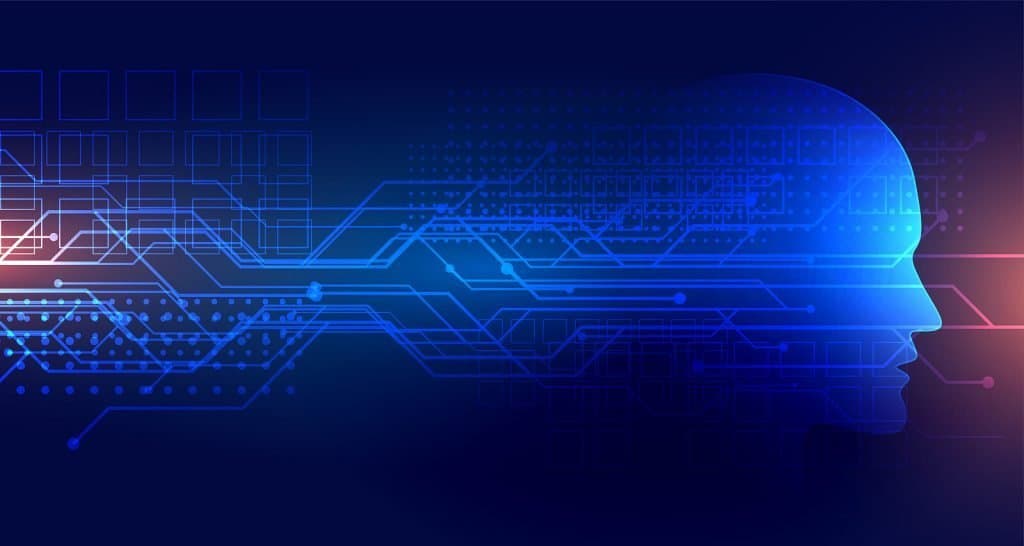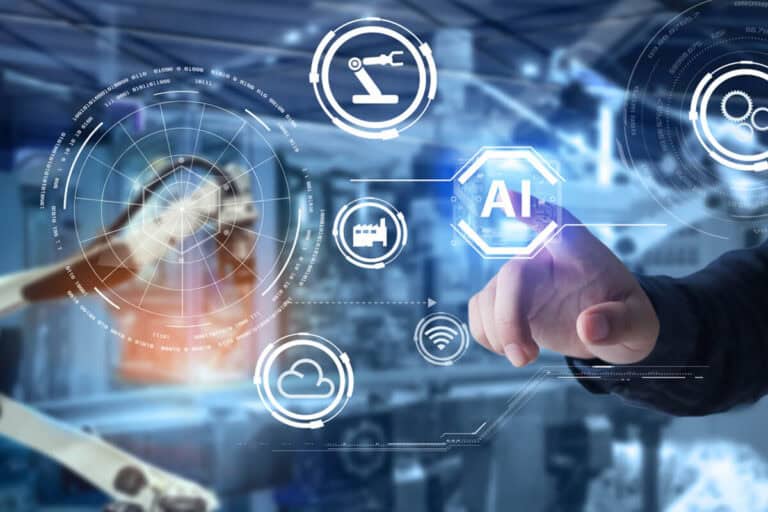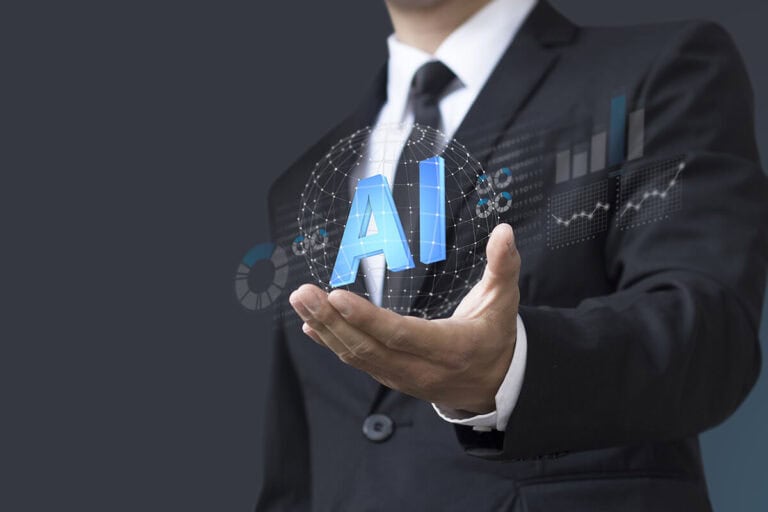While the COVID-19 pandemic impacted many aspects and factors of how we do business, it did not reduce Artificial Intelligence (AI) impact on our everyday lives. It is becoming obvious that intelligent machines and self-teaching algorithms will play a major role in the ongoing battle against this pandemic and other issues that we may face in the future. Undoubtedly, AI remains a key trend in technology and innovations that will fundamentally change how we live, work, and play soon.
Table of Contents
ToggleArtificial Intelligence (AI) has been predictable for the decennial because the technology was associated with robots. Over the last few years, we have seen rapid growth in the number of applications, platforms, and tools based on AI (artificial intelligence) and ML (machine learning) technologies. As a result, scientists and developers have designed intelligent machines that can develop knowledge and simulate reasoning. Driven by the mechanism of innovation, artificial intelligence can augment, automate tasks, and sometimes weaponize humans against each other.
Indeed, there are complications and confusion; still, corporate leaders celebrate AI. Furthermore, many of them believe that investing in AI-driven technologies will offer massive competitive advantages. Now, every enterprise, irrespective of its size or industry type, wants in on this promising technology. With the arrival of 2021, we will likely see AI bringing radical changes in many aspects, whether it’s organizations, business models, innovations, and cultures. In this article, we will explore seven artificial intelligence (AI) trends that will dominate 2021.
Trending Applications of AI
- Introduction of AI-Enabled Chips
Artificial intelligence depends on specialized processors that complement the CPU. Also, the advanced CPU models can not enhance the speed of the AI training model. The AI model needs additional hardware to solve complex mathematical problems and increase the speed of tasks, like object detection and facial recognition.
Chip manufacturers, including ARM, Intel, Qualcomm, and NVIDIA, will deliver specialized chips to enhance the speed of AI-based applications. AI-enabled chips are designed for particular use cases and scenarios related to NLP (natural language processing), computer vision, speech recognition, and many more. Industry-grade applications will also soon depend on these chips to provide intelligence to end-users or consumers.
- Facial Recognition
Facial recognition has been widespread for many negative press releases, whether China’s SenseTime or Google won the lawsuit. But, this technology will continue to grow in 2021 also. Moreover, facial recognition is an AI-based technique introduced to identify individuals using their facial features or digital image patterns.
Indeed, 2021 would witness an increased usage of facial recognition technology with high reliability and accuracy. As we all know, Facebook’s Deep face program is used for tagging friends and family in photos. As a result, almost every smartphone now comes with a face lock. Facial recognition will continue to be used for biometric identification, which will range from advertising to shipping experience. Due to non-invasive identification and ease of deployment, this Artificial Intelligence technology trend will continue to rise.
There are so many Facial recognition cases that include payment processing via security checks and law enforcement. According to several studies, upcoming facial recognition techniques can also be used in the healthcare industry for clinical trials and medical diagnostics.
- The convergence of AI and IoT
For Artificial Intelligence to make a positive impact, it should be integrated with other technologies. For instance, self-driven vehicles don’t make sense without IoT working with AI. The IoT regulates and enables car sensors that collect real-time data, whereas Artificial Intelligence (AI) power decision-making programs. Furthermore, Blockchain also works closely with AI to address trust issues, scalability, and security.
Deep learning algorithms help in making decisions and taking actions based on the data gathered by IoT sensors. IoT is ready to become the massive driver of artificial intelligence (AI) in the enterprise. Edge devices will be equipped with AI-enabled chips based on (Application Specific Integrated Circuit) ASICs and (Field Programmable Gate Arrays) FPGAs.
- Automating DevOps via AIOps
Modern infrastructure and innovative applications generate log data that is captured for indexing, analytics, and searching. The colossal data sets are obtained from the server software, application software, operating systems, and hardware that can be correlated to search patterns and insights. After machine learning models are applied to these types of data sets, IT operations can transform from reactive to predictive. When the potential of (AI) Artificial Intelligence is used in operations, it will reconstruct the way infrastructure is managed.
The application of ML (machine learning) and AI (artificial intelligence) in DevOps and IT operations will offer intelligence to companies. For example, it will help the ops team in conducting an accurate and precise root cause analysis. AIOps has been in focus since 2019 and is continuing to be a focus. The convergence of AI and DevOps will benefit both public cloud vendors and enterprises.
- Automated Machine Learning Models
The AI (artificial intelligence) trend that will change the ML-based models is known as AutoML. It will enable business analysts and developers to develop machine learning models that can solve complicated scenarios without undergoing training ML models.
When using the AutoML platform, business analysts can emphasize the business problem rather than getting lost in the workflow and progress. The platform can fit between cognitive APIs and custom ML platforms to deliver the right level of personalization without requiring developers to go via the complete workflow.
- Deep Learning
Machine learning becomes complex when the number of dimensions of data increases rapidly. For example, you try to decipher your voice into the text. The problem is complicated several times. However, deep learning is a technology behind voice control, image recognition, and self-driving cars. In addition, with the emergence of both Amazon’s Alexa and Google Home, you may find a wide range of voice-based applications using deep learning and natural language processing. Indeed, we can see increased interest in next-generation deep learning algorithms to overcome difficult problems, such as interpreting technology infrastructure issues.
- Interoperability Among Neural Networks
One of the significant challenges in developing neural network models depends on selecting the relevant framework. Developers and data scientists have to choose the right platform from many options, including Apache MXNet, TensorFlow, Microsoft Cognitive Toolkit, Caffe2, PyTorch, and many more. Once a model is trained and assessed in a particular framework, it isn’t easy to port the trained model to another framework. This is because of the lack of interoperability among neural network toolkits.
AWS (Amazon Web Services), Microsoft, and Facebook have partnered to develop Open Neural Network Exchange and enable reusing trained neural network models across various frameworks to overcome this challenge. As a result, it has become a crucial technology for the industry from 2019.
Conclusion
After writing about these trending apps of AI, I can surely say that Artificial Intelligence will continue to see new AI trends with each passing year. On the contrary, we will not witness a decline any time soon.
So, these were the seven trending applications of Artificial Intelligence you should keep an eye on in 2021. If you plan to launch your own Artificial Intelligence application, you can leverage these trends mentioned above. Also, if you think you need support in validating your idea, you can approach a professional Artificial Intelligence application development company. They will help you build and finalize your app concept and do the design and app development.




